Does Sugar Withdrawal Exist? (and How to Know if You Have It)
#30DaysofSugar
Do I have sugar withdrawal?
Eating less sugar is a total win. It improves your skin, helps prevent weight gain, lowers the risk of diabetes, and much more. The problem is, cutting sugar out of your diet is easier said than done (especially without the right tools). Maybe you’ve tried to go cold turkey, but ended with horrible groggy side effects… otherwise known as sugar withdrawal. Yes, sugar withdrawal is a real thing, and in today’s post we’ll be going into all of the signs, steps, and effects of sugar withdrawal AND how you can prevent and relieve them.
Eating less sugar is a total win. It improves your skin, helps prevent weight gain, lowers the risk of diabetes, and much more. The problem is, cutting sugar out of your diet is easier said than done (especially without the right tools). Maybe you’ve tried to go cold turkey, but ended with horrible groggy side effects… otherwise known as sugar withdrawal. Yes, sugar withdrawal is a real thing, and in today’s post we’ll be going into all of the signs, steps, and effects of sugar withdrawal AND how you can prevent and relieve them.
Sugar is part of sugar and junk food addiction, and it’s as real as you and me.
Can not eating sugar cause headaches? YES! Anxiety? YES! You see where I’m going here?
Sugar withdrawal, how it’s connected to carb withdrawal.
If you consume excessively high amounts of sugar on a regular basis, it will cause your body to go into shock if you suddenly stop consuming it, causing your body to experience a variety of different symptoms (which I’ll get into in a second). This is sugar withdrawal.
So here’s the thing: sugar is seriously addictive.
Like more addictive than cocaine addictive.
It fires up dopamine and lights up your brain in the same manner as drugs, and it’s wayyyy easier to get a hold of than said drugs, being as it’s legal and found in 90% of food items in an average grocery store.
This is where carb fits in.
There are two types of carb withdrawals, so let me clarify. Right now I'm not talking about when you choose to follow a low-carb diet and you experience carb cravings (as in cravings even for complex carbs) or crash.
What I’m talking about here is when you cut out high glycemic carbs suddenly (like white bread, cakes, and bleached white-flour based snacks - or those commonly associated with added sugar) and then get negative side effects - this carb withdrawal is actually just a form of sugar withdrawal!
Just like candy, junk foods like white bread and chips are addictive in the same way that heroin or cocaine is addictive.
A study published in the American Journal of Clinical Nutrition suggested that high sugar, high glycemic, foods are just as addictive as table sugar.
David Ludwig and his colleagues at Harvard, did a study that showed that foods that raise blood sugar even more than table sugar such as white flour, white potatoes and refined starch, have a high glycemic index, and trigger a region in the brain “nucleus accumbens” which is the area in the brain that is ground zero for a drug abuse addiction.
Basically, foods that spike your blood sugar are addictive. They don’t even have to be traditional ‘sweets’.
So when you cut out sugar your body is hit with mental and physical issues similar to those experienced by recovering drug addicts. Of course, illicit drug use is more challenging to overcome, but your brain does crave sugar in the same ways it would crave drugs, and is a common reason why people fail to live low sugar and sugar-free.
So what exactly is sugar withdrawal?
Glucose (a form of sugar) is a top fuel source for you body. When you consume carbs, glucose breaks down into sugar giving your body energy.
When you abruptly cut your sugar intake, it causes your body’s blood sugar to drop, resulting in a range of symptoms as your body learns to adapt to new energy sources.
As insulin (a hormone made by the pancreas that allows your body to use sugar from carbohydrates in the food that you eat for energy or to store glucose for future use) starts to decrease, this allows the body to access stored fats to burn for energy. After a few days, your lipid levels start to drop, especially your triglycerides (a type of fat in your blood).
If your lipid levels drop too low, too quickly, it can cause mood swings, depression and anxiety.
How severe your symptoms are depends on how much sugar you were eating everyday before you cut your intake.
BUT, if you do manage to get through a prolonged period of low sugar consumption, your palate will start to change, meaning that the things you used to eat normally will now taste overly sweet and be less tempting.
What are the symptoms of sugar withdrawal?
Remember when I said that an abrupt decrease of sugar can cause headaches? Well it can do much more that that.
You can start to get symptoms as early as 24 hours, and they can include:
Cravings
Lack of energy
Hunger
Anxiety
Headaches
Muscle pain
Insomnia
Chills
Nausea
Gas and bloating
If you cut your intake of sugar, it might not necessarily be the detox that is the worst issue, but you do need to adjust properly anyway.
When trying to overcome sugar withdrawal, you need to be able to recognize what to expect and know how to manage the symptoms. So, I've put together this list of symptoms you’re most likely you get and how you can deal with them:
Anxiety
Since sugar gives us a short boost in energy and a short-term high, taking away this source of that boost can make you manifest anxiety in the form of teeth chattering, hand tremors, and head shaking.
What Step to Take:
This symptom is quite hard to get rid of so you’ll have to go through it. BUT, there are some ways to ease it!
I personally suggest taking some relaxation time drinking a cup of anxiety reducing tea like chamomile, taking a turmeric supplement (a spice that contains curcumin, a compound studied for its role in promoting brain health and preventing anxiety disorders), and eating foods rich in zinc, like pure whole grains, oysters, kale, broccoli, legumes, and nuts.
Headaches
Sugar can cause headaches, and it’s one of the most common signs of sugar withdrawal. It can feel quite painful, and you might even feel dizzy and sick!
What Step to Take:
To relieve the headaches, I suggest you consume a small amount of sugar in the form of fruits.
If your headaches are severe then you should try a more gradual sugar reduction approach and maybe skip going turkey this time around.
Cravings
The most immediate symptom after going cold turkey sugar craving. This indicates a sugar imbalance in your system and is a number one sign that you’re dependent on sugar.
What Step to Take:
Eat good fats. Eating health fats will keep you satiated keeping sugar cravings away.
Choose foods like avocados, nuts and seeds.
The stages of sugar withdrawal.
Just to prepare you for the steps of detoxing from sugar, I want to quickly go over the common stages you may go through if you cut your sugar consumption.
Stage 1:
You’ll commit to your decision and feeling motivated to cut your sugar intake. 🦸
Stage 2:
You’ll start to crave anything sugary. 🍌 Make sure you pack a healthy snack to quickly nip cravings on the bud.
Stage 3:
You’ll start getting sugar withdrawal symptoms after your cravings hit. This may include headaches, anxiety, hunger and diarrhea. 💩 During this point it is crucial to stay motivated. Stay positive, it won’t last. 💪
Stage 4:
You’ll start to feel really good once your symptoms fade. 😇 Other than an overall health improvement and decreased chance of disease and cancer, you’ll also have clearer skin and a general boost in energy levels. 🏆
When cutting out sugar, make sure you don’t skip meals and keep a piece of fruit on hand to keep your blood sugar from dropping to low.
If you have diabetes, you must consult with your doctor before making a dietary change as your medications may need to be adjusted.
Always listen to your body, and if you go sugar-free cold turkey and have persistent or severe withdrawal symptoms make sure to consult with your doctor and instead make smaller dietary changes.
Cutting out sugar may mean unpleasant symptoms like headache, fatigue, muscle aches, cravings and nausea but, you shouldn’t let that stop you.
Try to remember these symptoms usually only last a few days!
Sugar has been connected with so many health issues, from heart disease to diabetes to even CANCER, so the benefits of reducing it are definitely there.
I use to have a sugar addiction, and I know that getting rid of it can be very hard. I’ve gone cold-turkey many times. I've been through the withdrawal symptoms.
Personally, I do not think you should go cold turkey unless you have a healthier relationship with sugar.
It can be very unpleasant, and it’s almost impossible to maintain in the long run because it doesn’t allow for balance. When my I was still suffering from sugar addiction, all of my cold-turkey attempts only led to me going back to binging.
There are much better ways to make cutting out sugar an easier process.
As my health got to it’s worst, I started researching sugar and how to reduce it, but the thing was that I couldn’t find anything that could really help in an all-in-one place. Out of desperation, I set about developing my own system that would help me heal myself and my sugar addiction.
It did work, and that’s why I want to spread the word. I can now go 4-weeks sugar-free with no problems.
By making a few modifications to your diet and setting yourself up with the right knowledge, overcoming sugar withdrawal and maintaining it can be easier than ever.
You deserve to be healthy and you’re already motivated. You had the presence of mind to ask yourself questions like ‘why am I craving sugar?’ and ‘is sugar causing my headache?’. You’ve already taken the first step towards recognizing that sugar is no good.
You made it here, you’re ready to take steps.
And I’m here to help.
Check out my FREE ‘Ultimate Guide to Crushing Your Sugar Cravings’ Downloadable Guide.
It’ll help you get started on effortlessly breaking your sugar reliance/addiction for good with help + support. AND, most importantly, while maintaining a healthy balance between your mind and your body - because low-sugar living shouldn’t feel like deprivation.
If you want to read up more on sugar cravings and addiction, I have essential steps to help you crush that sugar obsession once and for all and find out what causes sugar cravings over on my other blog post: When You Should Stop Eating Sugar, How To Do It
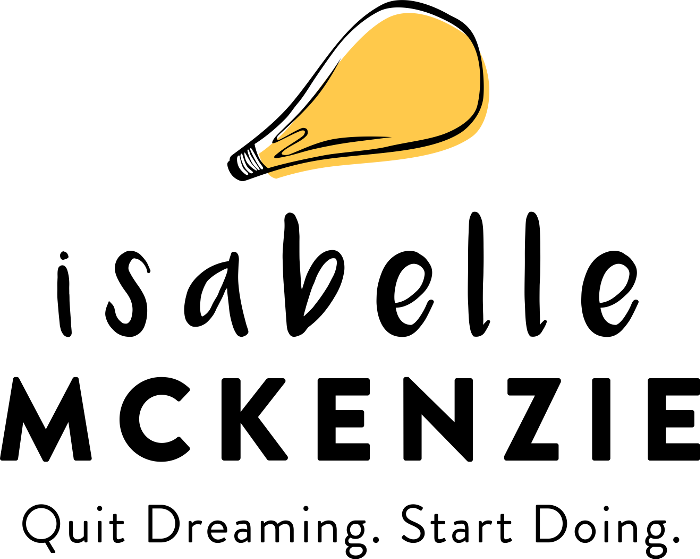

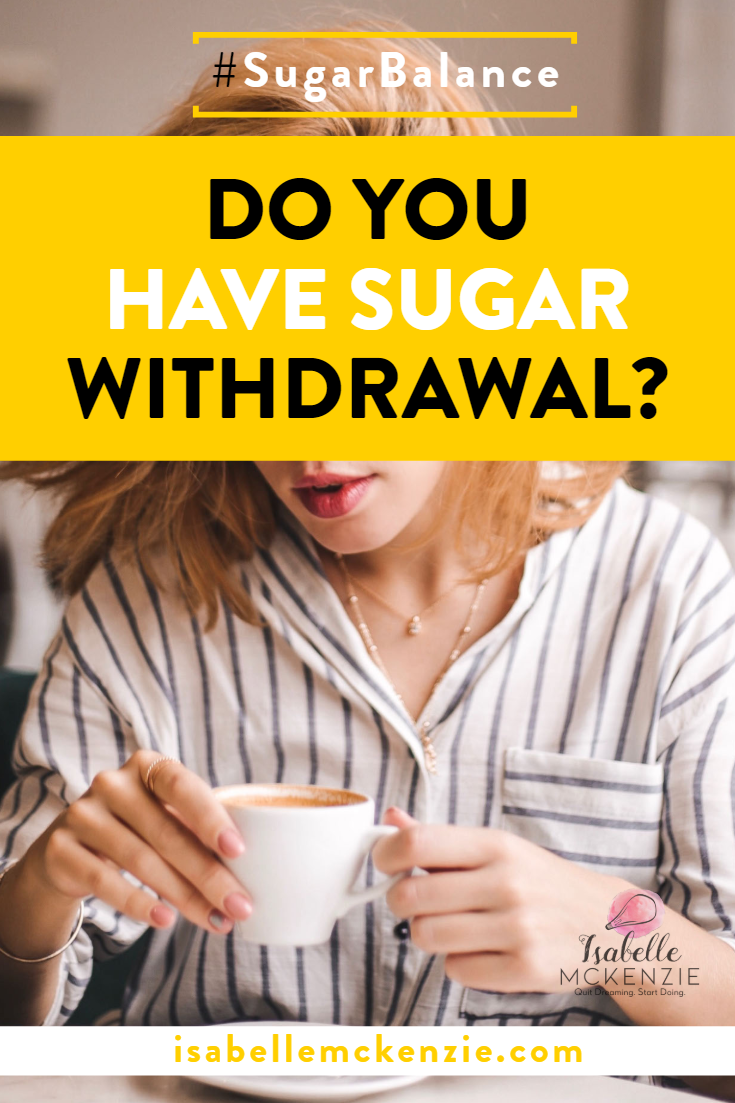

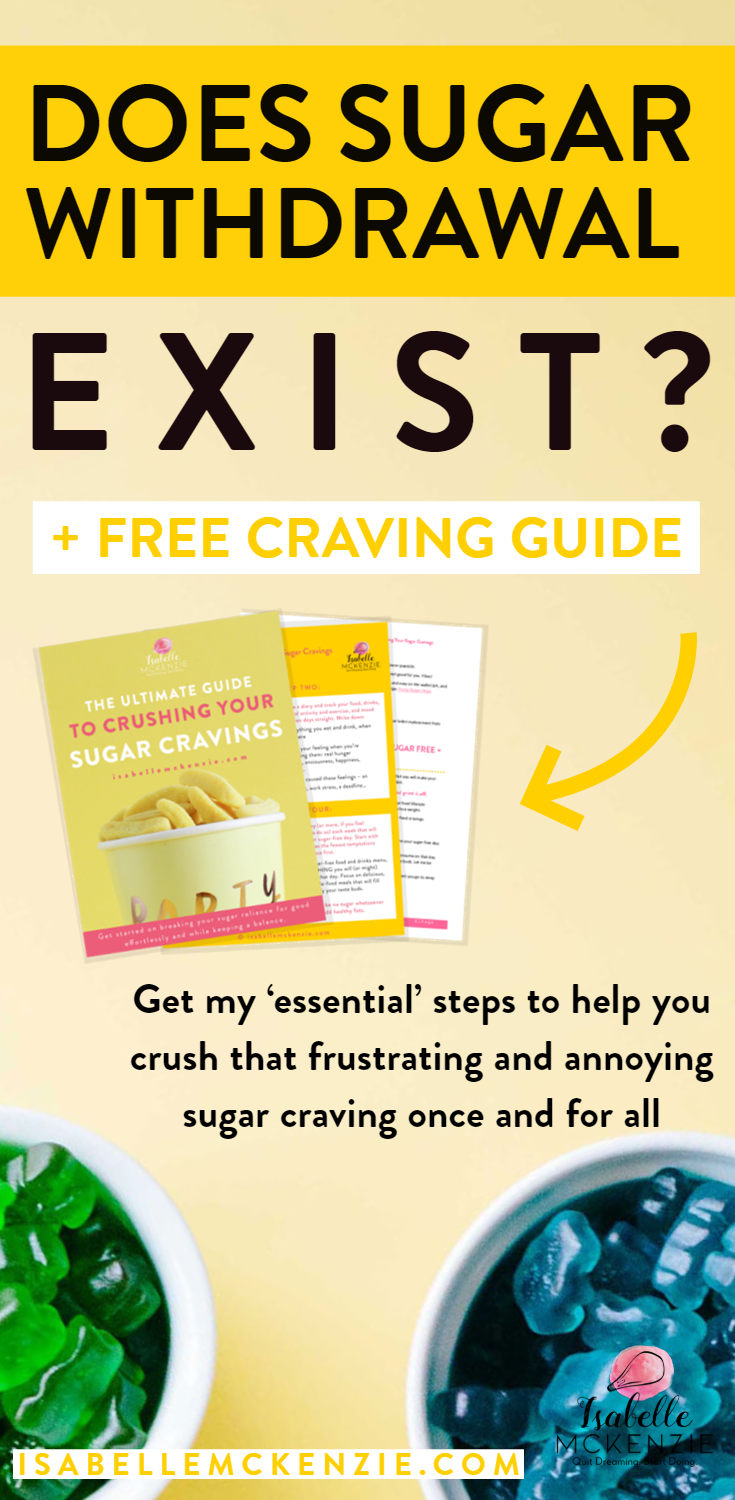
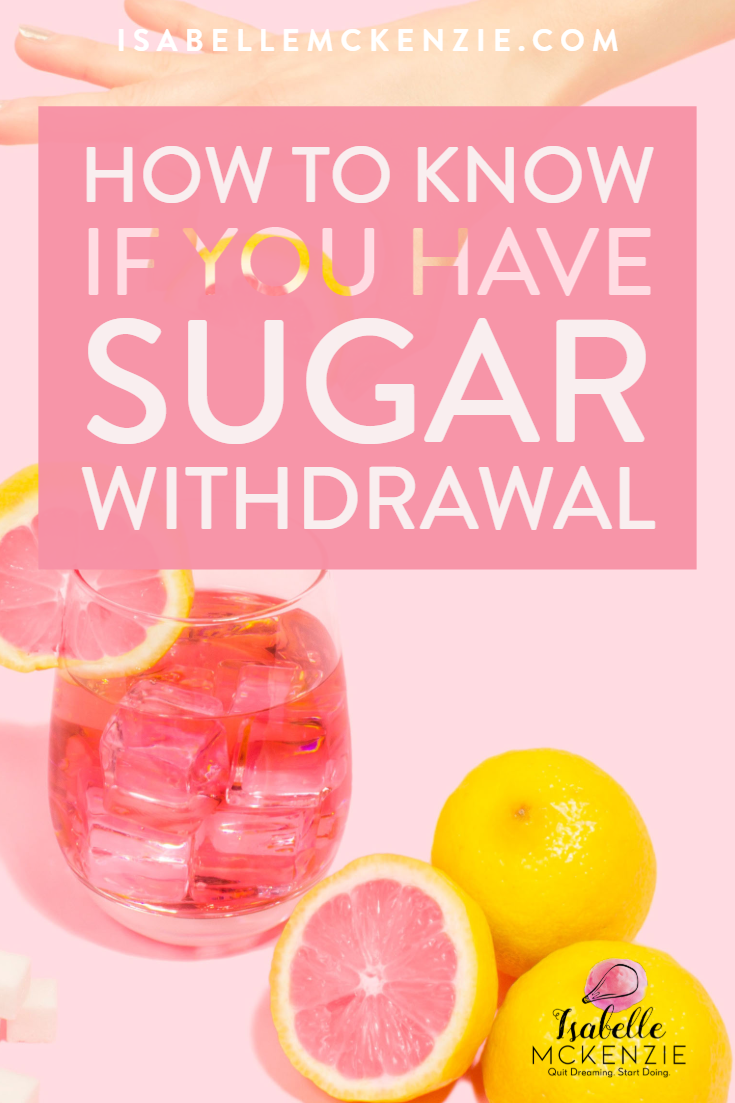
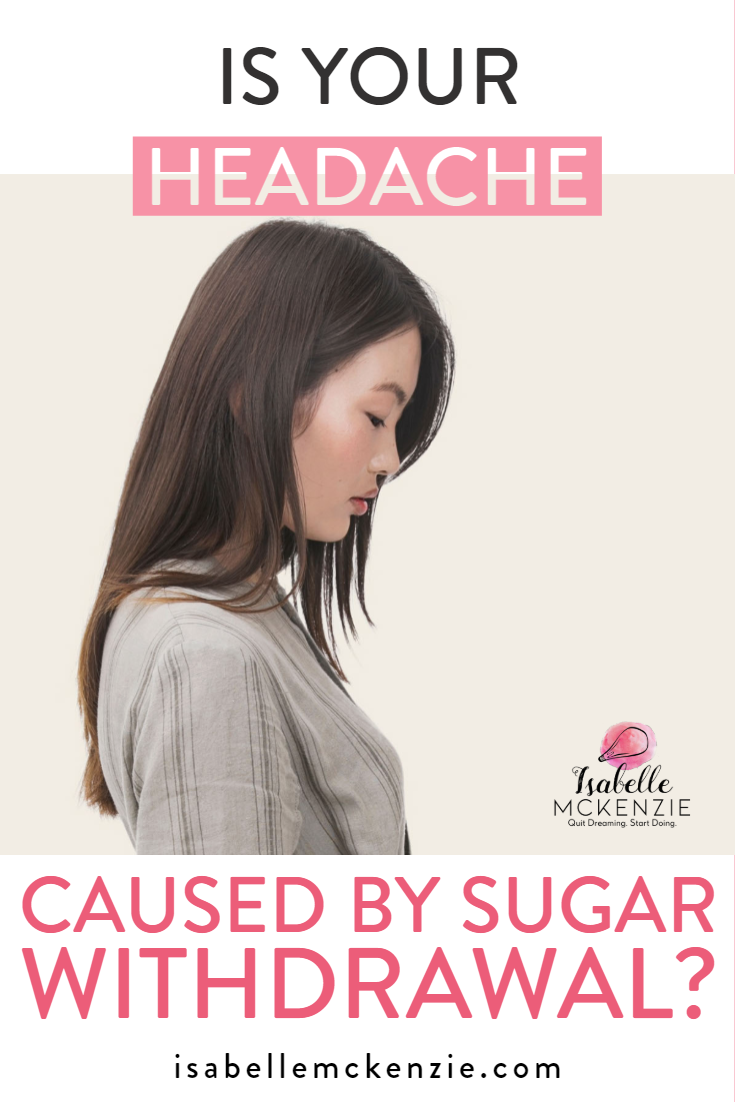
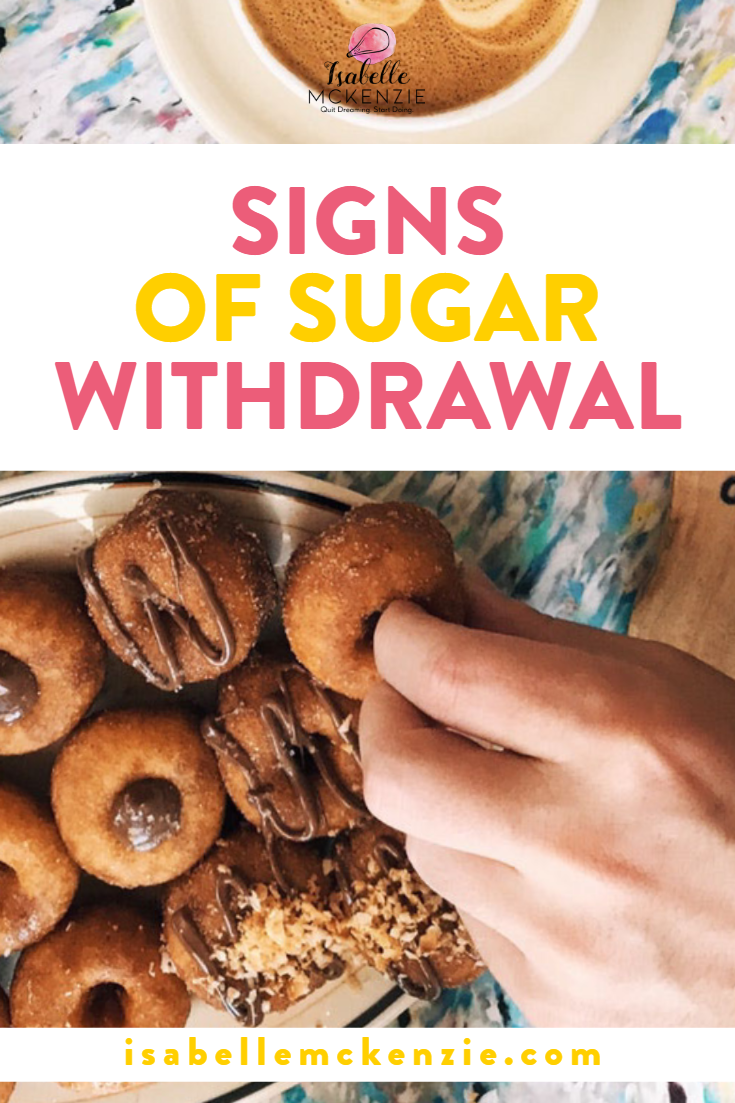







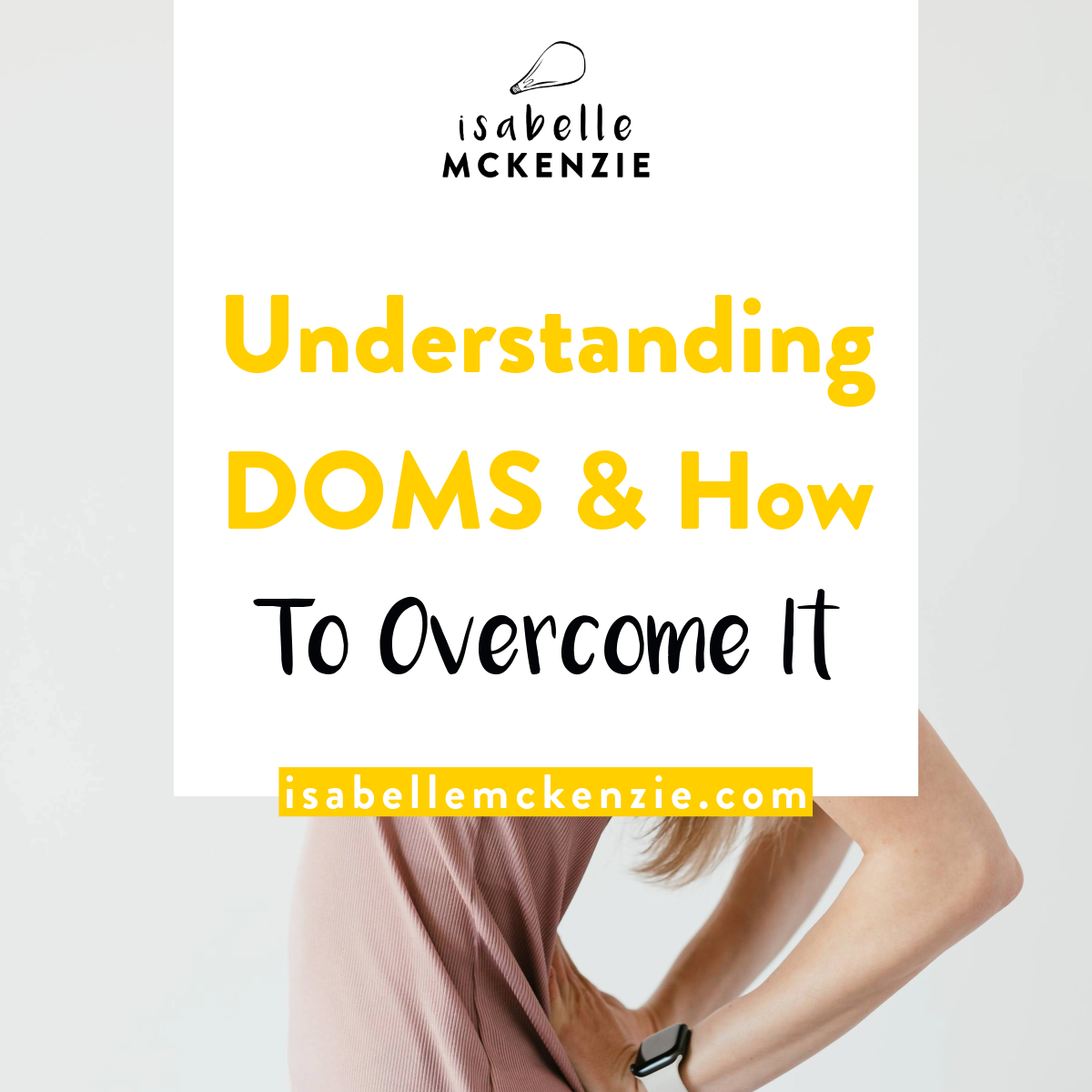


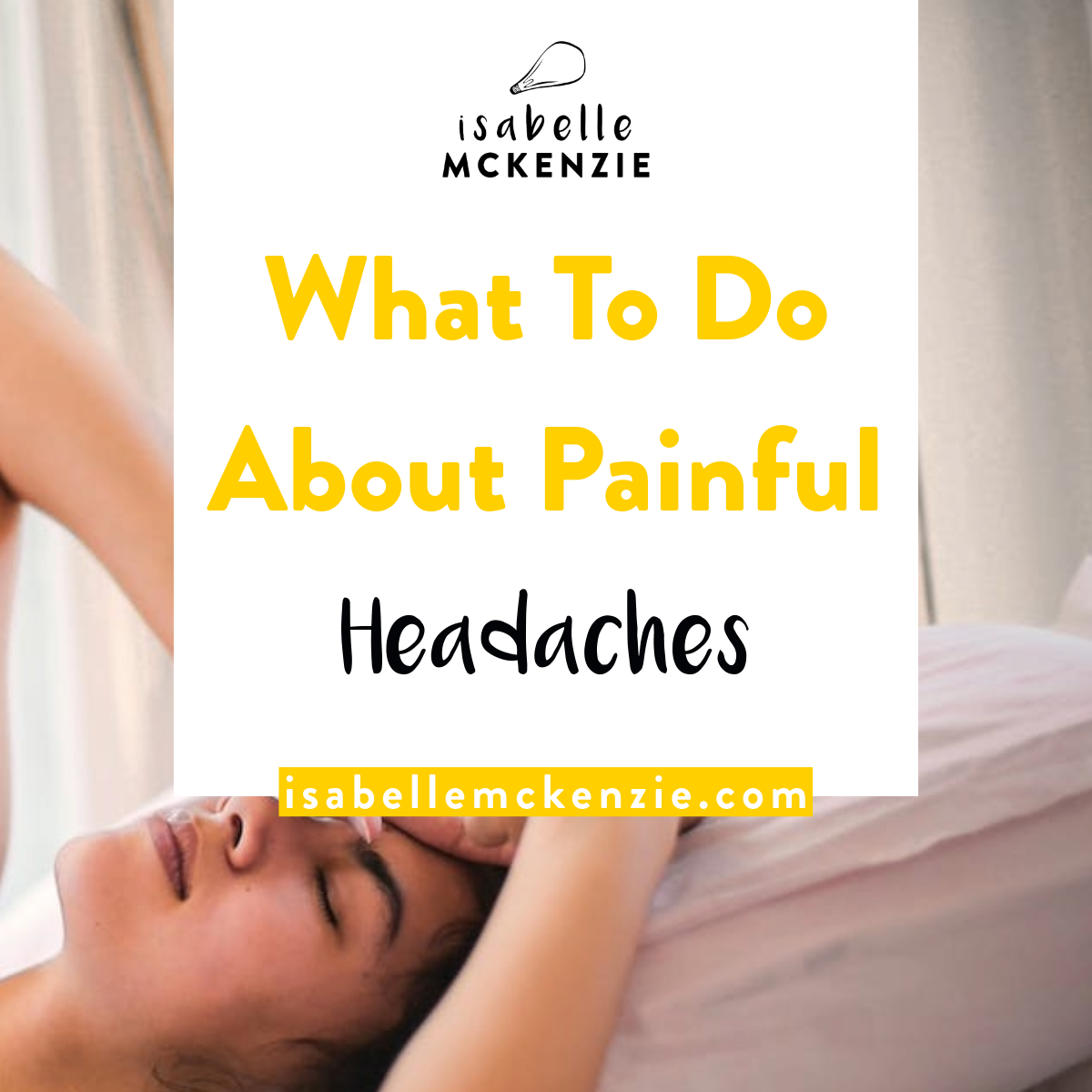



Here’s a Free Powerful Training for You!
Join us for the Ultimate Guide To Break Your Junk-Food & Sugar Addiction FREE in-depth, walk-through training to take you from sugar, junk-food addicted to craving free for GOOD!
SAVE MY SEAT